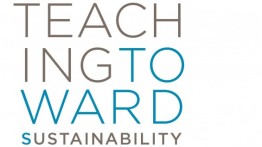Educators' Workshop: Teaching Towards Sustainability
Friday, March 13, 2015, 1 - 5pm
Saturday, March 14, 2015, 10am - 4pm

Cosponsored with the Wright-Ingraham Institute, the Educators’ Workshop brought together a cross section of educational innovators who are working to meet the urgent pedagogical challenges of our time: understanding what sustainable societies might look like, where and how they might work, and how we can best educate for proficiency in environmental systems and critical resource management to anticipate the work of the future.
The workshop looked at precedents from the late 1960s and 1970s and a range of current approaches. The goal was to find common threads and agreements among the participants about what is (or may be) working and where the weaknesses and potential failures lie. The workshop examined how several models and particular strategies might be adapted to a range of environmental situations, institutions, cultures, and economic conditions.
Different sets of questions were utilized to direct workshop discussions: qualitative questions focused on the values and priorities within teaching toward sustainability, quantitative questions investigating the most effective tools and strategies to employ within sustainability education, lifetime questions concerning the evolution of sustainability education and how sustainable pedagogies can remain relevant through generational changes, and finally design questions examining the role of systems design in teaching toward sustainability.
Key participants included: Prof. Kevin Bone, Prof. Catherine Ingraham, Prof. David Turnbull, Dr. Michael Ben-Eli, Elizabeth Thompson, Sarah Skenazy, Prof. Diana Agrest, Prof. Paul Cawood Hellmund, Irwin Silverberg, Prof. Phoebe Crisman, Frank Miller, Hadley Arnold and Prof. Peter Dean.
Located at 41 Cooper Square, on Third Avenue between 6th and 7th Streets.




